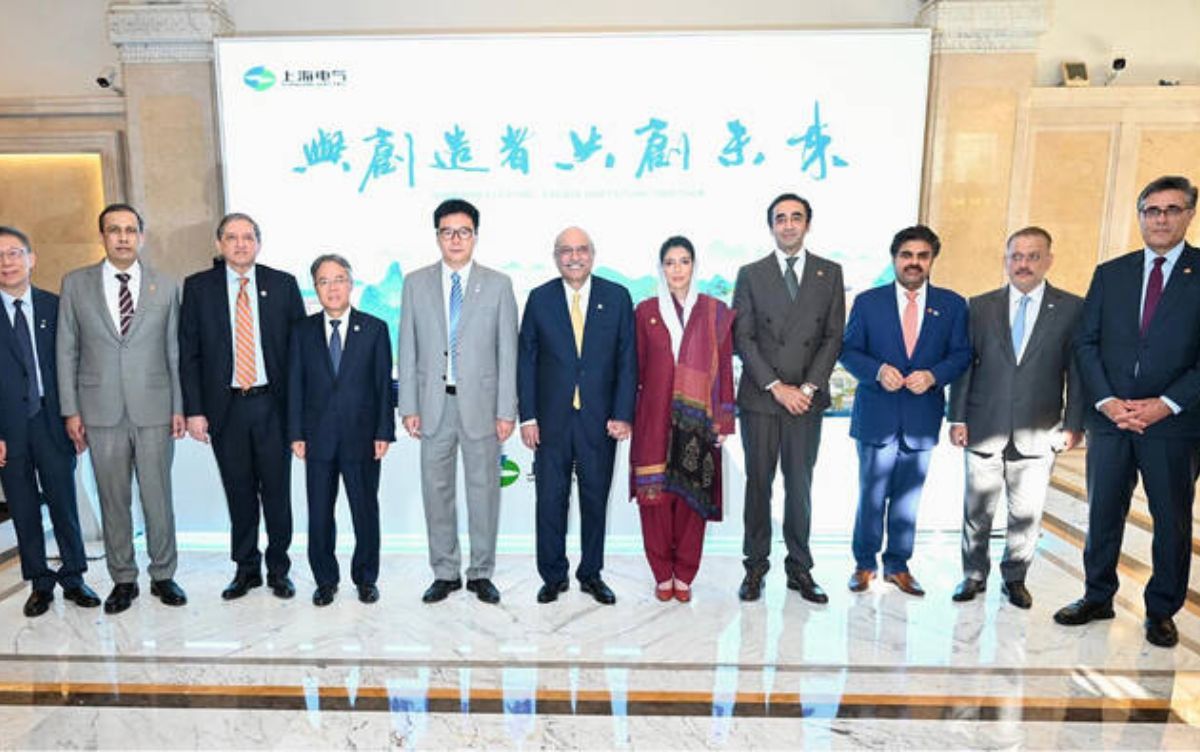Zardari Seeks New Path with Shanghai Electric After KE Collapse
President Asif Ali Zardari has assured Shanghai Electric that all outstanding matters will be addressed in an “amicable” manner, following the company’s decision to terminate its $1.8 billion deal to acquire Pakistan’s K-Electric.
On September 9, Shanghai Electric’s board decided to call off the acquisition, citing shifting business conditions in Pakistan and K-Electric’s inability to fulfil deal requirements. The acquisition, originally initiated in 2016, had faced repeated delays due to regulatory hurdles and liquidity challenges tied to Pakistan’s ballooning circular debt.
 P.c. China Pakistan Economic Corridor
P.c. China Pakistan Economic Corridor
Zardari, currently on a ten-day visit to China, met Shanghai Electric Chairman Wu Lei in Shanghai, accompanied by First Lady Aseefa Bhutto Zardari and former foreign minister Bilawal Bhutto Zardari. He thanked the company for its contribution to Pakistan’s energy sector, job creation, and socio-economic development, while assuring that remaining issues would be resolved with mutual cooperation.
Wu Lei expressed appreciation for the Pakistani government’s security arrangements for Chinese workers. In response, Zardari reiterated Pakistan’s commitment to enhancing safety measures for Chinese nationals working on various development projects, many of whom have faced security threats from militant attacks in recent years.
During the visit, the president also oversaw the signing of a memorandum of understanding for a coal gasification plant in Sindh’s Tharparkar region and invited Shanghai Electric to explore fresh investment opportunities, particularly in upgrading Pakistan’s outdated power transmission and distribution systems.
Pakistan’s energy sector continues to struggle with frequent outages, heavy reliance on costly fuel imports, insufficient renewable sources, and mounting circular debt—an accumulation of unpaid subsidies creating financial stress across the entire sector. Islamabad is seeking support from international partners like China to modernise its infrastructure and expand renewable energy capacity.